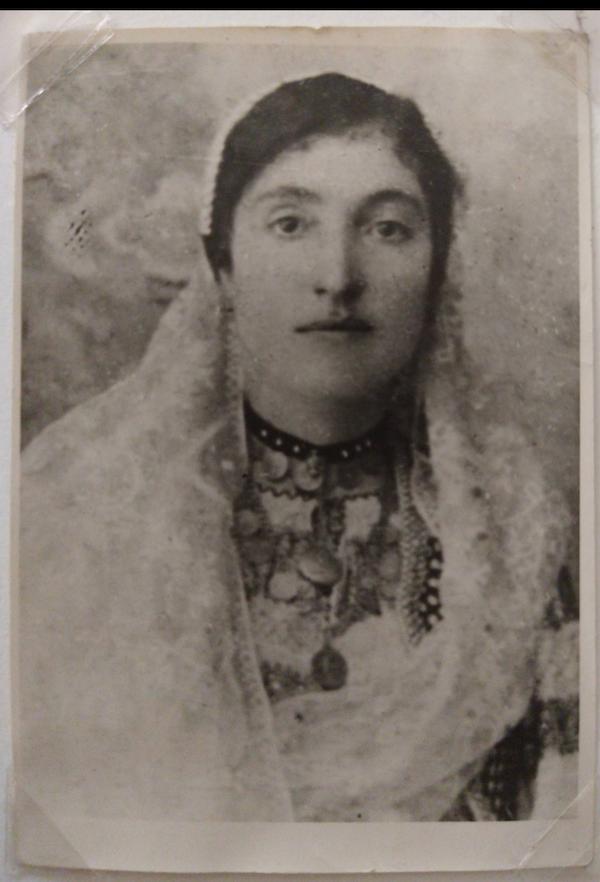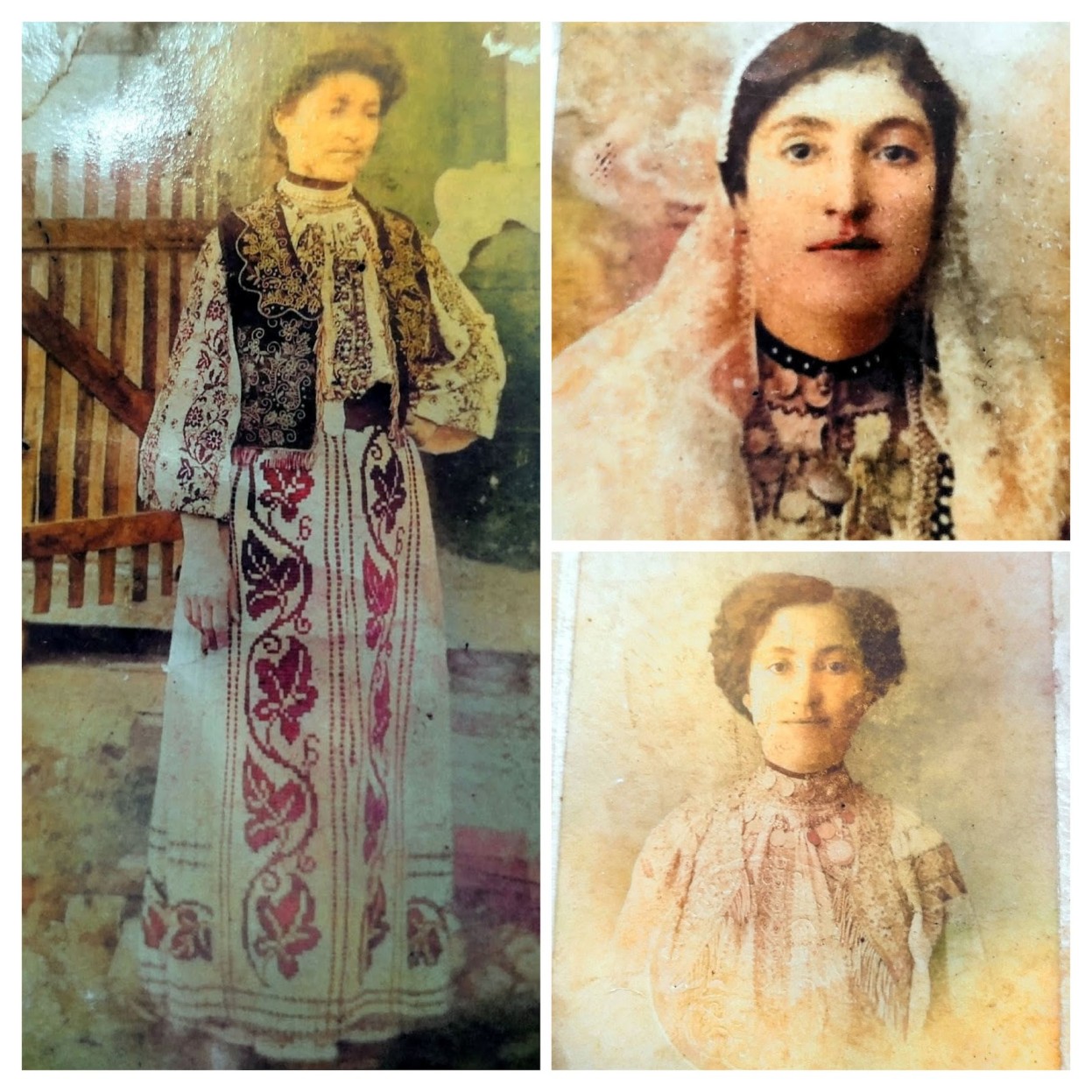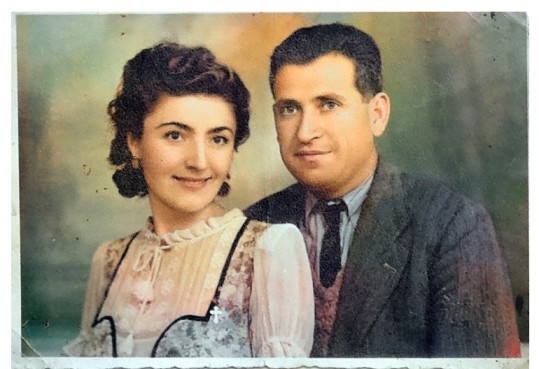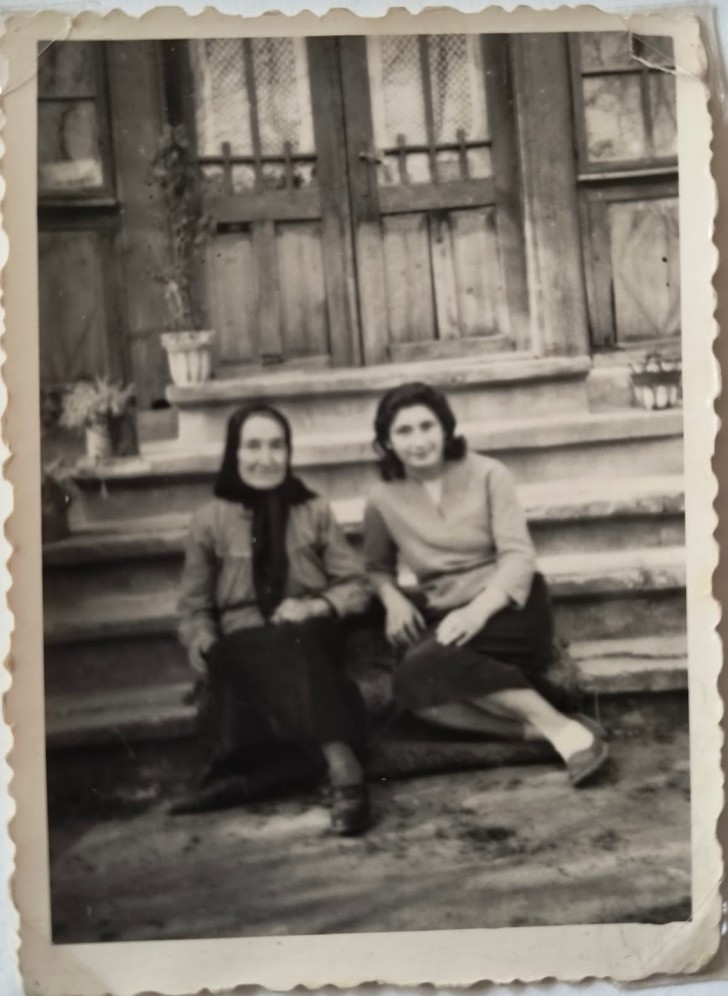Letters, lives, love 📨
I have first seen these letters that my mother got from her grandmother when I was a child. I always loved them.
Theere are maybe 25 of them, with beautiful calligraphy on small, yellowed and densly written pages.
It was only a year ago, in 2024, that I read them properly though and I was captivated by them.
The writer is my great-grandmother, Constance.
She wrote to her granddaughter, Mariana (my mother) throughout her life but only letters from 1959 and 1960 survive.
Mariana was then first 14, later 15 years old when she got those letters.

I peeled off the normal family news about relatives or long forgotten events or modest aspirations
(Constance really hoped to be able to buy her granddaughter a wintercoat this year).
What is left are some golden nuggets; a few paragraphs that I found wise, tender and timeless.
I included seven fragments here, with some explanations and then the backstory that make the letters even more remarcable.
I love the letters and the strong message of resilience, integrity and hope for all the tragedies in Constance's life.

Here are some of Constance's words for her granddaughter:
~ ~ ~ ~ ~ ~ ~ ~ ~ ~ ~ ~
My darling, trust yourself, be kind and be brave! I'm reading a book that talks about Indira Gandhi and this is something she said: "be brave! Courage is the only lasting foundation of character. Without courage, there is no morality, no religion, no love. One cannot follow the paths of truth or love as long as one is under the empire of fear”. Be brave, my darling girl!
My note: Given Indira’s biography and the fact that she became PM in 1966, it is hard to explain how Constance, in a village in communist Romania, was reading about her in January 1960. Even with the power of the internet I couldn't find this exact quote but there are some similar ones, though less compelling in my opinion, that are attributed to Indira Gandhi like “Without courage, you cannot practice any other virtue.” or “Courage is the most important of all the virtues because without courage, you can’t practice any other virtue consistently".
~ ~ ~ ~ ~ ~ ~ ~ ~ ~ ~ ~
Recently I read this:
When God holds you close in His embrace,
He keeps you safe in sacred Grace.
As weapons for the battles you may face,
He doesn’t give you stones and cudgels
But wit and skill against your struggles.
If in happiness you keep your sense
And stay true and honest, no pretence
If modest and humble you can stay,
When fame and riches come your way
If you keep your promises sincere,
Even to your foes, without fear,
With companions like these here,
You will conquer worlds, far and near.
From the Sanskrit Anthology, translated by George Cosbuc
You will ask me what is the point of these verses that I sent you. Here is the answer: I liked them a lot and I learned from their content three acts of great value and that God loves those who live by those values: honesty, humility or modesty and the sanctity and truthfulness of your given word.
On the occasion of December 1st, I ask God to take you under the protection of the holy mercy and to cement in your inner being these three qualities: honour, modesty and honesty, and with their help, to overcome the obstacles encountered in life.
Don't be upset that I couldn't be there with you; although absent in my body, my thoughts, care and longing for you are merged with your shadow and invisibly accompany you everywhere as your silent guardians.
My notes:
1st of December is the granddaughter, Mariana’s birthday and Aurelia’s, Constance ‘s daughter and Mariana's mother, death day, Aurelia died in childbirth.
The Romanian translator, George Cosbuc is a major poet whose original work is studied in Romanian schools.
His translations from Sanskrit literature are rarely mentioned. Romanian culture has no special links with India, so this is a fairly exotic source.
Based on a recent edition of the Sanskrit Anthology that I read, this is not one poem as the letter implies. It looks like Constance combined and edited two separate entries from a section called Proverbs, Maxims, probably for educational purposes.
The second stanza reminds me of the famous If poem.
The English translation, such as it is, is my own as I could not find one for these verses.
~ ~ ~ ~ ~ ~ ~ ~ ~ ~ ~ ~
The fruits are finished in the orchards, the vines have been picked and the gardens are stripped of their beauty. The migratory birds have long taken their flight to the warm places where they will spend the winter, and in their place there are the little children who fill the streets and make the air resound with their chirping and hooting, when they come and go from school. Don't have any worries about me, my darling, because God keeps me on my feet and I am used to every hardship and armed with enough patience to bear any weight.
~ ~ ~ ~ ~ ~ ~ ~ ~ ~ ~ ~
In order to be able to resist the enemies that seek to bring it down, the body must be strong, well-nourished, because weakening the body also weakens the mind, it can no longer understand or retain the knowledge entrusted to it. With how much pleasure you look at a horse-drawn carriage to which some strong and lively horses are harnessed, and what pity and disgust inspires you another, with poor horses, so weak you can count their ribs and what contempt and anger you have for their owners. The same is true of the most superior but rational animal, man. This is how wrong is the idea that being excessively thin is better or more beautiful.
My note: Constance grew up with horse drawn carriages and had a small one like this (sareta) for her and her daughter, Aurelia]
~ ~ ~ ~ ~ ~ ~ ~ ~ ~ ~ ~
The fields are soft green, the trees are loaded with flowers, dusting the ground. After a burst of wind, a snow-white layer is spread all over our land, made up of these delicate sheets of petals. The people are scattered like ants in all parts, each working where and for what needs doing. The white snowdrops passed very quickly and the liliac has not opened well until now. Those little white flowers have not come out yet, I fear they might have died. Take their seeds this summer because you said you have a lot in your garden. I would love to grow those flowers from you, my love.
~ ~ ~ ~ ~ ~ ~ ~ ~ ~ ~ ~
My pure thoughts of love follow you, make a circle around you and form a strong surrounding wall to protect you from any evil. Step with faith in the help of the mighty One, in the 15th year of your life. May He guide your steps on the good paths and give you strength in the struggles of life.
~ ~ ~ ~ ~ ~ ~ ~ ~ ~ ~ ~
Take care of your health, read your books and be patient, because life is woven more from troubles and sufferings, but one must avoid them, and when one cannot avoid them then one must fight, overcome them, and succeed, without being knocked over.
The backstory
Constance was born in 1892 in Arges County, Romania, into a relatively well-off, land-owning family.


Their daughter, Aurelia, was born in January 1918. By all accounts,
and from the photographical evidence, Aurelia was exceptionally beautiful, as well as clever and artistic.
Full of patriotic enthusiasm and wanting to make a difference,
Aurelia started to work as, what you might call today, an intern for a local politician, Armand Calinescu,
while attending a teacher training college.
When she finished school at 18, she moved to
Bucharest to live with one of Constance's sisters and to continue to work as a secretary
to the same politician that climbed the ranks until he became prime minister. Six months into his tenure,
he was assasinated by a pro-Nazi militia at the start of WWII.
Aurelia continued to work as a civil servant and to build a life for herself in the capital until
the Second World War's bombardments intensified in Bucharest, when she moved back to the safety of the village of her birth.
More on Aurelia and what she achieved with her mother support in my other stories.
Aurelia met and, in 1944, married a man called Constantin and by next year she was pregnant with Mariana, my mother.

After WWII, the communists came into power in Romania. Anyone well off was labelled enemy of the people.
All Constance's land was confiscated and her house, the best in the village, was requisitioned for the use of party officials.
She was evicted from her house. Grandmother and baby granddaughter were allowed into one of the unheated outbuildings.
Later they could live in the attic of the house. Later still, after 1960, Constance regained the use of her own house.
Constance was left with a deep aversion to cold and draughts: warmth was the luxury. She loved the hot summers.
When Mariana was 10, her father asked her to move in with him and his second wife in Bucharest.

Mariana visited her grandmother in the village during summer holidays and they wrote to each other for 12 years, from 1956 until Constance's death in 1968.

Mariana adored her grandmother, the only mother she has known, but she was never a Sanskrit poetry kind of person. Other descendents on the other hand... Constance died before I was born but I feel close to her because of those letters. Words matter, words are legacy, words can offer solace and inspiration for generations to come.